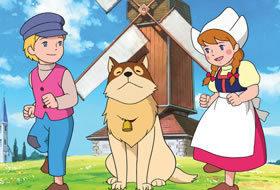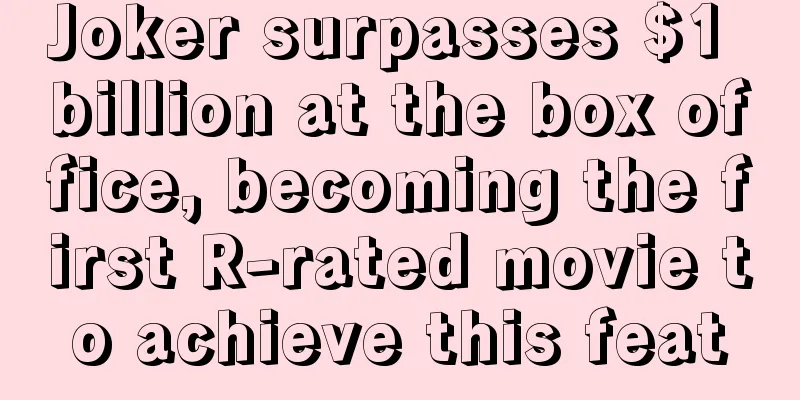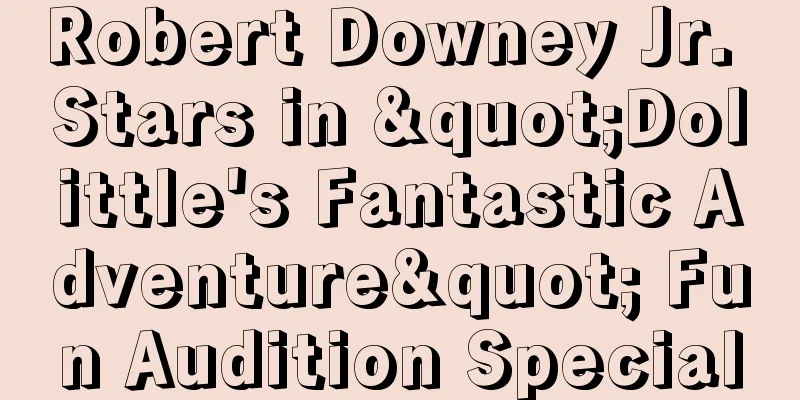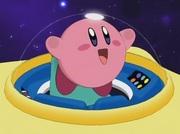A Dog of Flanders: Reassessing a moving animated classic

A Dog of Flanders: A Story of Eternal Inspiration and Tragedy"A Dog of Flanders," broadcast in 1975, is known as the first work of the World Masterpiece Theater series produced by Nippon Animation. Set in the Flanders region of Belgium, this work depicts the heartwarming story of Nello, a boy who loves to draw, and his faithful friend, the dog Patrasche. The original is a classic of children's literature written by British author Ouida (Louise de la Ramee) in 1872, and its tragic ending deeply moved viewers. storyNello is a boy who loves drawing and dreams of becoming a painter in the future. He lives a poor but happy life with his grandfather Jehan. One day, Nello and Jehan find an old dog named Patrasche that has been abandoned by the owner of a hardware store, and they nurse him back to health. The bond between Nello and Patrasche gradually grows stronger, but Jehan dies from overwork, and Nello is left all alone. Furthermore, a fire at the windmill is mistakenly thought to be Nero's doing, and he has nowhere to go. Having lost his place in an art competition and having lost everything, Nello falls into a peaceful sleep with Patrasche in front of a painting by Rubens. Commentary"A Dog of Flanders" is the first work of the World Masterpiece Theater produced by Nippon Animation, and is an important work following "Heidi, Girl of the Alps" as a work that depicts life-size humans. This work was the catalyst that firmly established the World Masterpiece Theater series. The original work is a classic of children's literature written by British Ouida (Louise de la Ramée) in 1872, and its tragic ending deeply moved viewers. During the original broadcast of the anime, children all over the country were inundated with petitions for the lives of Nello and Patrasche. The theme song "Yoake no Michi" is particularly famous for its version by the Antwerp Children's Chorus. castThe voice actors were Michie Kita as Nero, Hiroo Oikawa as Grandpa Jehan, Yoko Asagami and Reiko Katsura as Alois, Tamio Oki as Mrs. Kozetsu, Taeko Nakanishi as Madame Elina, Haru Endo as Granny Nouret, Kuriko Komamura as Georges, Masako Sugaya as Paul, Masashi Amemori as Uncle Michel, Ichiro Nagai as Noel, Yasuo Muramatsu as Hans, Sumiko Shirakawa as Andre, Shozo Iizuka as the hardware store owner, Iemasa Iemiya as Hendrik Rey, and Reiko Muto as the narrator. The performances of these voice actors deeply moved the audience. Main StaffThe original story was written by Louise de la Ramée (Ouida), produced by Koichi Motohashi, production management by Mitsuru Takakuwa, planning by Shoji Sato (early Zuiyo Eizo, later Nippon Animation), music by Takeo Watanabe, direction by Masao Kuroda, producers by Shigeto Takahashi, Junzo Nakajima, Ryuji Matsudo, scripts by Yoshiaki Yoshida, Ryuzo Nakanishi, Takayuki Kase, Tsunehisa Ito, Shunichi Yukimuro, Michio Sato, Toyohiro Ando, Yukiko Takayama, Akira Matsushima, series composition by Isao Matsuki, Hideo Mutsuka, Ryuzo Nakanishi, character design by Koji Mori, animation directors by Shunichi Sakai, Toshiyasu Okada, Akiyoshi Hane, art director by Kazue Ito, director of photography by Keiichi Kuroki, layout by Shunichi Sakai, sound director by Toshio Sato, color design by Michiyo Yasuda, animation check by Hidemi Maeda, animation by OH Pro The cast included Shinohara Seiko, Yonekawa Isao, Tannai Tsukasa, Manabe Joji, Iimura Kazuo, Takahashi Shinya, Ota Akemi, Sakurai Michiyo, Takano Noboru and others, finished by Studio Robin, backgrounds by Mukuo Takamura, Kawamoto Seihei, Kubota Tadao, Nishi Yoshikuni, Nishihara Shigeo, Ishibashi Kenichi, cinematography by Trans Arts, effects by Ishida Sound, recording studio by Tohokushinsha, developing lab by Toyo Development Laboratory, editing by Seyama Takeshi, storyboards by Okuda Seiji, Tomino Yoshiyuki, Kuroda Masaro (Shibata Hajime), Yamazaki Shuji, Otani Minoru, Takahata Isao, Sasaki Masahiro, Nishimaki Hideo (Mizusawa Wataru), assistant directors Yokota Kazuyoshi, Kageyama Yasuo, production desk by Negoro Akira, production assistants Matsudo Ryuji, Takasago Katsumi, Tomioka Yoshikazu, Horiuchi Toshihiro, Iida Seiichi and others, and production by Nippon Animation and Fuji Television. The opening theme song "Yoake no Michi" had lyrics by Kishida Eriko, music by Watanabe Takeo and sung by Osugi Kumiko, while the ending theme song "Dokomade Aru Koune" also had lyrics by Kishida Eriko, music by Watanabe Takeo and sung by Osugi Kumiko. Main CharactersNello is a kind boy who loves to draw and wants to be a painter in the future. He lost his parents at a young age and lives with his grandfather Jehan. He wants to see the paintings by Rubens in the church in Antwerp, but he doesn't have the money to see them. Alois is Nello's childhood friend and a cheerful girl. She was raised without any hardships, so she can be a little selfish, but she is also good friends with Patrasche and enjoys playing with Nello and the others. Grandpa Jehan is Nello's only blood relative and works to transport milk from the village to Antwerp. He is not in good health due to the wounds he received in the war when he was young and his age, but he wants to somehow fulfill Nello's wish to become a painter. Patrasche is a working dog who was overworked by the hardware store and then abandoned. After Nero and Jehan saved his life, he helps them with their work and is always with them. He is a very clever dog who is taken to the hardware store once, but when he finds an opportunity, he escapes and returns to Nero and the others. Cozetsu is Alois' father, the richest man in the village who owns a windmill. He cannot forgive the poor Nero for being so friendly with Alois. Elina is Alois' mother, and worries about Nero as if he were her own son. Georges and Paul are the brothers of Nero's friend, and when Paul falls into the canal, Nero desperately saves him, which makes Georges feel grateful and respectful towards him. subtitle 1. Boy Nero (1975/01/05) Related Titles"A Dog of Flanders" was also produced as a movie version called "The Dog of Flanders." This movie version is based on the tragic ending of the original story, but gives viewers a deeper emotional response. Theme songs and musicThe opening theme "Yoake no Michi" was written by Eriko Kishida, composed by Takeo Watanabe, and sung by Kumiko Osugi. The ending theme "Dokomade Aru Koune" was also written by Eriko Kishida, composed by Takeo Watanabe, and sung by Kumiko Osugi. These theme songs deeply moved the viewers and enriched the worldview of the work. Ratings and Recommendations"A Dog of Flanders" is a work that left a strong impression on viewers with its tragic ending and deep emotions. In particular, the bond between Nello and Patrasche and Nello's determination to pursue his dreams touched many people. The original work is also highly valued as a classic of children's literature, and the depth of the human drama can be felt throughout the work. This work is a masterpiece that can be recommended to a wide range of generations, from children to adults, and is a must-see, especially for those looking for a moving story. Furthermore, as the first work in the World Masterpiece Theater series, it also has great historical significance. Through the story of Nello and Patrasche, viewers will be able to learn about dreams, friendship, and the harshness and beauty of life. |
>>: The appeal and evaluation of "STONE": The depths of anime from a modern perspective
Recommend
The new trailer of the Naoki Prize-winning animated film "Meat from the Fishing Port" will be released on June 11
The new animated film "Meat from the Fishing...
The appeal and reviews of "Butlers: A Million Year Story": A thorough analysis of the ultimate butler anime
Butlers: A Thousand and Hundred Year Story: A tim...
The appeal and reviews of "The Strongest Galaxy Ultimate Zero ~Battle Spirits~": If you're looking for the ultimate battle experience, this is it!
The appeal and evaluation of "The Strongest ...
The appeal and reviews of "Kick & Slide": A thorough analysis of the thrilling action anime
"KICK&SLIDE": A new form of enterta...
Appeal and evaluation of "Mouse's Vest 2": The sequel's deeper and more moving
The appeal and evaluation of "Mouse's Ve...
Demon Slayer: Kimetsu no Yaiba Entertainment District Arc: Developments that exceed expectations and the charm of the characters deepens
"Demon Slayer: Kimetsu no Yaiba - Entertainm...
The final battle of "Demon Slayer" Tanjiro's rampage is similar to Naruto's nine-tailed fox possession, causing heated discussion
Today, on April 24, a Japanese player posted a ph...
The Grudge will be filmed as a TV series and will be released on Netflix next spring
The Netflix Original Works Festival was held in T...
Future Boy Conan: A thorough review of the revival of the giant robot Gigant
Future Boy Conan: Resurrection of the Giant Machi...
"It's better not to reboot" The American version of "The Grudge" IGN 4 points Rotten Tomatoes 20%
Today (January 4), IGN gave the newly released Am...
A thorough analysis of the emotions and growth of Sasaki and Miyano -Graduation Edition-!
A comprehensive review and recommendation of &quo...
The live-action version of "Cells at Work!" is scheduled to be released on December 13 and a new trailer has been released
The comic-adapted movie "Cells at Work!"...
A review of the profound worldview and characters of "Sonny Boy"
A comprehensive review and recommendation of &quo...
The latest trailer of the completely independent animated film "Mouse Man" will be released in theaters on September 25
The completely independent animated film "Mo...
The latest trailer of the movie "Kakegurui 2" starring Minami Hamabe will be released on June 1st
The second live-action movie of the super popular...









